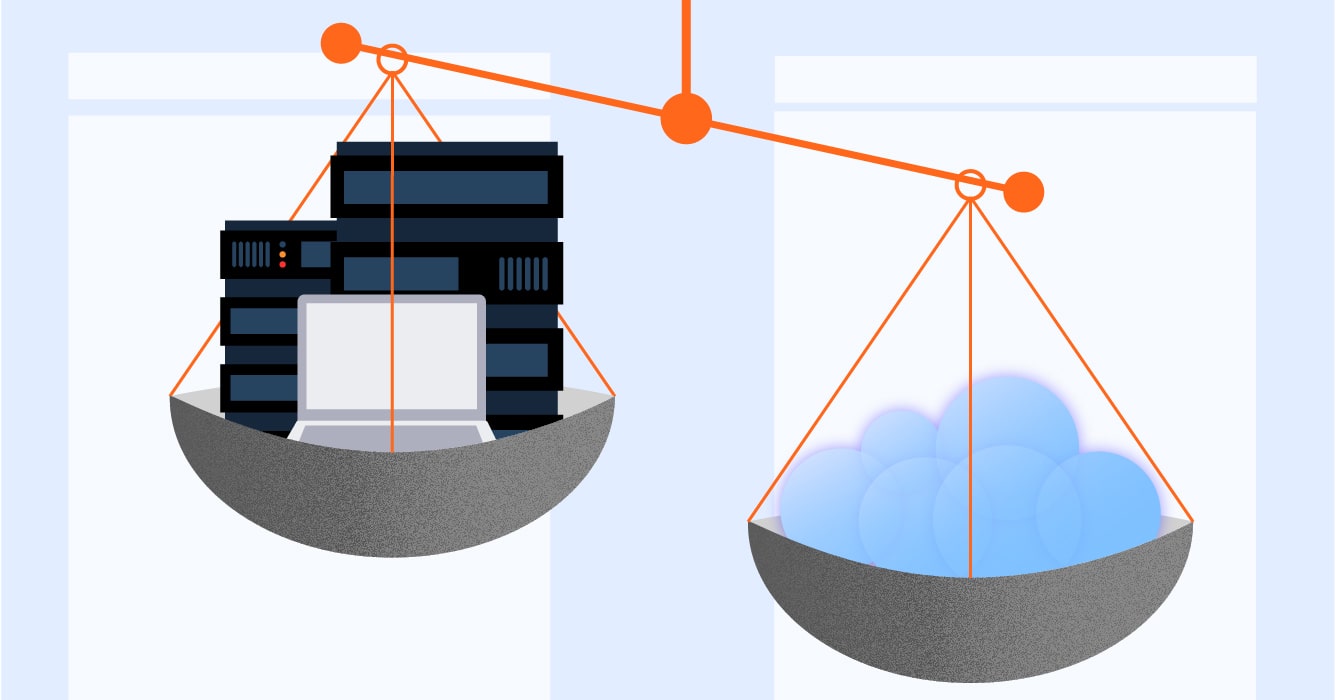What if the transition to the cloud does not increase your profits?
-
3397
-
2
-
1
-
0
The biggest fallacy of nowadays world is the so-called Productivity paradox, which states that the increase in investments in the IT operations does not lead to the growth of productivity.
“But wait!” — you would say. What about the gurus of all types and various presentations on multiple conferences, and endless ads proclaiming, that if you invest heavily in your IT operations you will reap immense benefits? What about the predictions that unless you transition to the cloud tomorrow, implement the latest DevOps practices in a week, integrate the most expensive Machine Learning model for Big Data analytics — unless you invest heavily in your IT department, your business is doomed to lose the competitive race? They are true if one understands them in full.
There is one crucial point of immense importance — the dependency between the investment in the IT operations and your business productivity is indirect.
This is the vital reason why these IT experts talk about Return on Investment or a decrease in Total Cost of Ownership instead of increasing your revenues. Because the technology works this way.
IT investments are about savings, not about profits or productivity
The natural desire of every entrepreneur is to increase the productivity and profitability of their business. If you add more production capacities, you can provide more produce in a unit of time, if you hire more men, you get more done, etc. This is not the case for IT technology, however.
You cannot reach your target audience without being present on the web nowadays. Your products or services use some IT systems to perform their functions. Your billing, R&D, internal learning, compliance and other records must be stored somewhere. We doubt you live in 1960-es and store your data in paper folders in cardboard boxes on the cabinet shelves.
Therefore, you use some IT infrastructure for these purposes, some computers and servers, network equipment and Internet uplink. This means the CAPEX and OPEX — and these tend to only grow with years, as the hardware has to be modernized regularly. The worst thing is, that you cannot ensure earning more by spending more on your IT tech, and it was proved with multiple studies and researches conducted throughout the span of over 40 years.
But what good does transition to the cloud make then? The cloud resources are unlimited by default. There cannot be a business task too resource-consuming to overload the cloud computing capacities of AWS, GCP or Azure (or business would run out of money under Pay As You Go billing model trying to do this). These Big Three cloud service providers constantly compete to provide better, more cost-efficient, personalized and performant services. Do you understand what it results in? Cloud computing services become constantly cheaper over time, as more and more customers begin using them.
Thus said, there is no CAPEX during the cloud migration, and OPEX decreases with time. To say more, the level of automation in the cloud is so high, that the ratio between the admins and the customers is 1:10,000. Thus said, a business can safely leave just one DevOps engineer to manage their AWS, Azure or Google Cloud account — and drop all the hardware maintenance and software licensing expenses for good, leaving just the workstations and the minimum of network and uplink equipment on-site.
The cloud providers go even further: they can manage your servers for you with AWS Fargate and EKS or Azure AKS — or even provide the fully serverless computing with AWS Lambda, Azure Functions, and Google Functions if that suits the needs of your business (though this cannot replace standard cloud infrastructure in full). This means the businesses can run smoothly in the cloud without ever looking under the hood. And it would cost them cheaper than maintaining the server farm to run their IT operations and keeping an IT department to maintain that farm.
Conclusions: the cloud is not about increasing the profits, but about minimizing the expenses
There are other obvious cloud computing benefits like built-in security, scalability, automatic load balancing, and cost-efficiency due to the PAYG billing. The main benefit of the cloud, however, is that it allows moving all your business operations off the premises and cut the expenses on EVERYTHING. All the aforementioned buzzwords like DevOps, Big Data Analytics, Machine Learning, etc. are just more steps to reduce your expenses even more, as your business grows.
Applying them means you can deliver the product updates faster or the services more reliably (DevOps), visualize hidden patterns within your data (Big Data analytics) and predict outcomes of various decisions based on historical data (Machine Learning). While these outcomes can be very positive and can lead to greater profits indirectly, they directly lead to minimizing the potential risks and losses. This is why all the DevOps and cloud speakers talk about reducing the TCO and increasing the ROI, not about increasing the actual profits.
This is why the transition to the cloud is not about increasing your profits, but about minimizing your expenses and risks. Isn’t this what every business needs?


